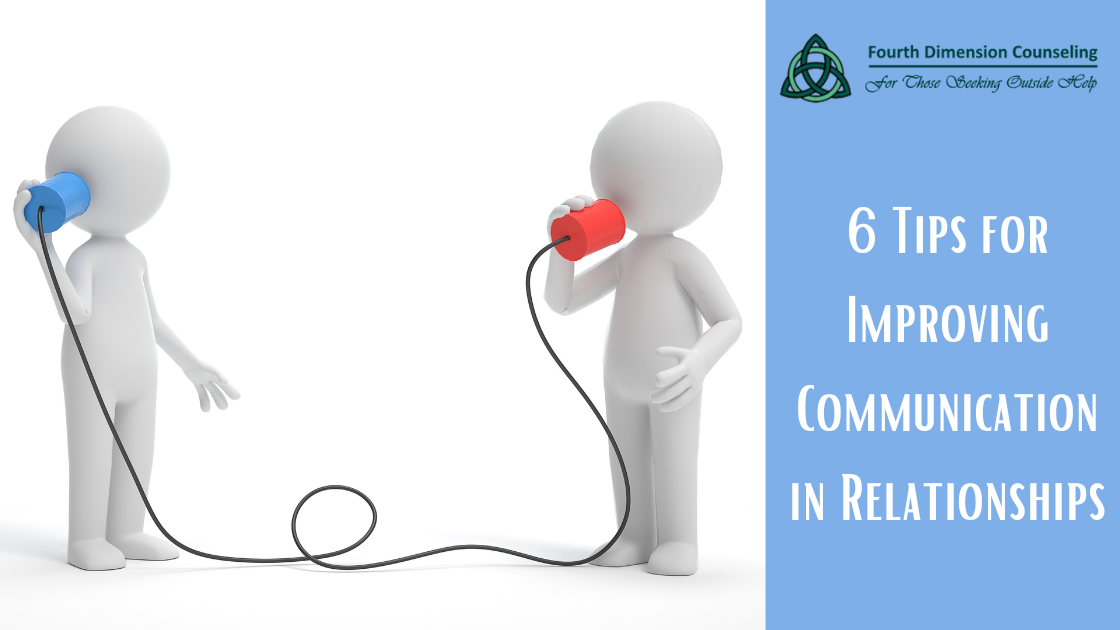
Effective communication is the cornerstone of any healthy relationship. Without proper communication, misunderstandings, arguments, and conflicts are bound to occur. To maintain a strong and healthy relationship, you must develop effective communication skills. Here are six tips for improving communication in relationships:
- Practice active listening: Active listening requires you to be fully present in the moment and give your partner your undivided attention. It involves paying attention to both verbal and nonverbal cues, such as tone of voice, facial expressions, and body language. When your partner is speaking, resist the urge to interrupt or interject your own thoughts. Instead, wait until they have finished speaking before responding. When you respond, try to paraphrase what they said to ensure that you understood their message correctly.
- Be honest and open: Honesty and openness are the foundations of a healthy relationship. Without them, trust and intimacy cannot thrive. To be honest and open, start by being honest with yourself about your own feelings and needs. Then, share those feelings and needs with your partner in a kind and respectful manner. Be willing to listen to your partner’s perspective as well, and try to find common ground where possible.
- Avoid criticism and blame: Criticism and blame can cause your partner to feel attacked, defensive, and resentful. Instead of criticizing or blaming, try to frame your concerns as requests for change or improvements. Use “I” statements to express your feelings and avoid using accusatory language. For example, instead of saying “You’re always late,” try saying “I feel frustrated when we’re late because it stresses me out.”
- Use nonverbal cues: Nonverbal communication can sometimes convey more than words. Pay attention to your own body language and tone of voice, and try to use these cues to convey your emotions in a constructive way. For example, if you’re feeling angry, take a deep breath and try to speak calmly and clearly. Similarly, if you’re feeling affectionate, try to convey that through a warm smile, gentle touch, or loving words.
- Take responsibility for your actions: When you make a mistake or hurt your partner’s feelings, it’s important to take responsibility for your actions. Apologize sincerely, without making excuses or shifting blame. Then, make a commitment to do better in the future by changing your behavior or addressing any underlying issues that led to the mistake.
- Practice empathy: Empathy is the ability to understand and share your partner’s feelings and experiences. To practice empathy, start by listening actively and trying to understand your partner’s perspective. Acknowledge their feelings and validate their experiences, even if you don’t necessarily agree with them. This can help build trust and mutual understanding in your relationship.
Improving communication in your relationship is an ongoing process that requires dedication and effort. It’s important to recognize that communication is a two-way street, and both partners need to be committed to improving their communication skills in order to build a stronger, more intimate relationship. By practicing the six tips mentioned above, you can create an environment of trust, openness, and mutual understanding that can help you navigate any challenges that come your way.
It’s important to remember that communication is not always easy, and it may take some time to develop your skills. However, by practicing these tips consistently, you can create a foundation of open, honest communication that will serve you well in all areas of your life. So, whether you’re in a new relationship or have been together for years, make a commitment to improving your communication skills and watch your relationship thrive.
More Advice:
- Do I Need to See a Counselor for Love Addiction?
- Simple Ways to Reduce Stress
- Sex Victims Can Experience PTSD
- Emotions and How to Process Them
- Sex Addiction Counseling
- How Do I Know it’s Time to Get professional Counseling?
- How to Heal from Betrayal Trauma
- What is PTSD? – (Government Help)
- The Mental Health Effects of Sexual Abuse
- The 4 Types of Intimacy
- 5 Ways to Reduce Stress
- What is Co-Dependency?
- How Same-Sex Couples Counseling is Different
- How to Know it’s Time to Get Mental Help
- How to Find a Great Relationship Counselor
- What if I Can’t Get in to See a Counselor?
